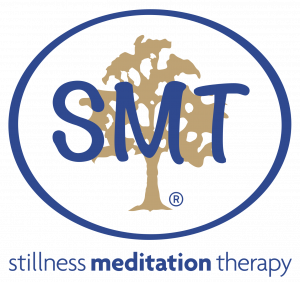Fanning the embers of life or burnout?
All work and no play makes Jack a dull boy
All play and no work makes Jack a mere toy*
Let’s get some balance in life? The old proverb gives us a hint that it’s not a bad idea to do just that, yet sometimes it’s a bit tricky to get the balance just right. We all must work in one way or another and while we all need play for recreation and refreshment, we can’t rely on play for life satisfaction. However and unfortunately for many, our desire for ambition and independence, our easy access to international travel and all that entails and our ready access to technology of many kinds can mean that work can become far too constant.
That’s when burnout begins to make its presence felt. This is when finding the time and energy for play becomes challenging. Play becomes difficult to organise, seems to be interrupting more important matters, and fatigue destroys what once would have been an enjoyable and relaxing event. This is when other unwanted feelings begin to dominate the day. Frustration becomes a regular companion. Struggling against a kind of entrapment or helplessness underpinning the work ethic and drive for success, tension increases. The mind is racing and the faster heartbeat and shallow breathing recurs too often. “Work is great, I love my job” is the inner cry – while chaos abounds and the exhaustion of wakeful nights produces with daylight, a sense of overwhelming panic.
This is overdrive, this is stress – this is burnout – a state of existence where its victim is running on adrenalin all week and collapsing in shreds at the weekend to curl up for two days under the doona. How much better to have balance, to be relaxed in work and play and keen to seek fresh air, sunshine, exercise, the fun and company of family and or a simple meal and a glass of wine with friends.
Burdened by headaches, chronic illness and the pressured feelings outlined above, now comes a conflict between love of work and fear of work. We see this from the dark suit corporate world to new mothers learning to juggle and adjust to an unfamiliar role. People want to succeed, to get things right, to be in control. But those aims are difficult to accomplish if we’re operating along the lines of the Duracell Battery.
So, are you loving your job and balancing it all with ease or slowly collapsing under its weight? If your reply is that of the latter, then you are in the clutches of a stress response and burnout is likely to be the reason.
At this Centre we abide by the words of Ainslie Meares who defined stress as the difference between what is happening in our life and how we are handling it. Those words of wisdom apply to the effect of any ‘stressor’ that may enter one’s life.
Continuing the Meares theory, stress alerts anxiety which then raises tension, the human person’s primary defense mechanism. To increase nervous tension is rather like giving a direct message to the brain that danger is at hand. A sense of danger means that the brain will begin to generate defence chemicals – stress hormones such as cortisol and adrenaline. And then the old story: the only sabre toothed tiger at hand is really one’s own inner fear – that intangible presence that we don’t want to face up to. So the body’s reaction is useless in this situation as there’s no dangerous predator to fight or run from. Nevertheless the task has commenced and the chemicals have to be dispersed somehow. This is when stress symptoms occur … the thumping head and heart, increased breathing, dilated pupils … and then, depleted energy, chronic illness, escalated anxiety, phobic reactions, obsessive coping strategies and, quite likely, depression.
Burnout is supposed to be work-specific. However, I believe this pattern is largely connected to temperament and constitution – the way we are individually made. I say this with conviction due to my personal experience which coincided with my first major panic attack. I wasn’t in the corporate world of today, but I was hard working, inclined towards perfectionist ideals, ambitious in my desire to perform well in anything I attempted, newly married, a new mother, very short of sleep, unaware of the need for rest and facing the reality and grief of a series of losses and readjustment to life. I was ‘burned out’. In my first book (In Stillness Conquer Fear, 2008) I view the build up to my predicament as ‘stress’ and that’s valid. The awareness of how stress affects our health remains vitally important. But recognition of the ‘burnout’ syndrome, a relatively new psychological term, is central to regaining work-life balance in the 21st century.
Though ‘burnout’ is not a recognized disorder, there is no shortage of fixes suggested or even recommended by many experts – from medical doctors, to psychologists, to business coaches and advisors. Most seem to miss the mark! Suggestions range from doing more training, focusing on causes of stress, analysing what stress is, etc. In other words, adding to an already ‘full’ schedule and pressure to perform better. From all that advice available, this is what makes most sense:
- In general, resting proves to be very effective. This may include a temporary reduction of working hours, slowly rebuilding the endurance of the individual (We really appreciate this advice because complete rest is central to our work at the SMT Centre)
- And finally a general piece of advice – take relaxation seriously … whether you take up meditation, listening to music, reading a book, taking a walk or visiting with friends and family, truly think about what you’ll do to relax, and designate time for it.
When we want to bring life back into life again, sometimes it’s in simplicity that we discover the greatest power …
* Additional line from Harry and Lucy Concluded (1825) by the Irish novelist Maria Edgeworth.


